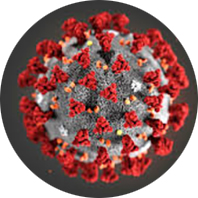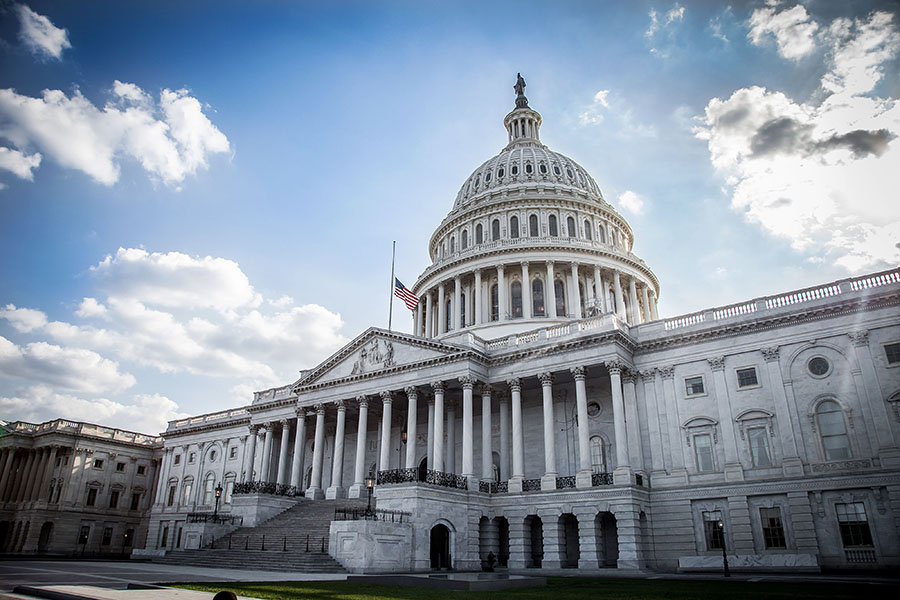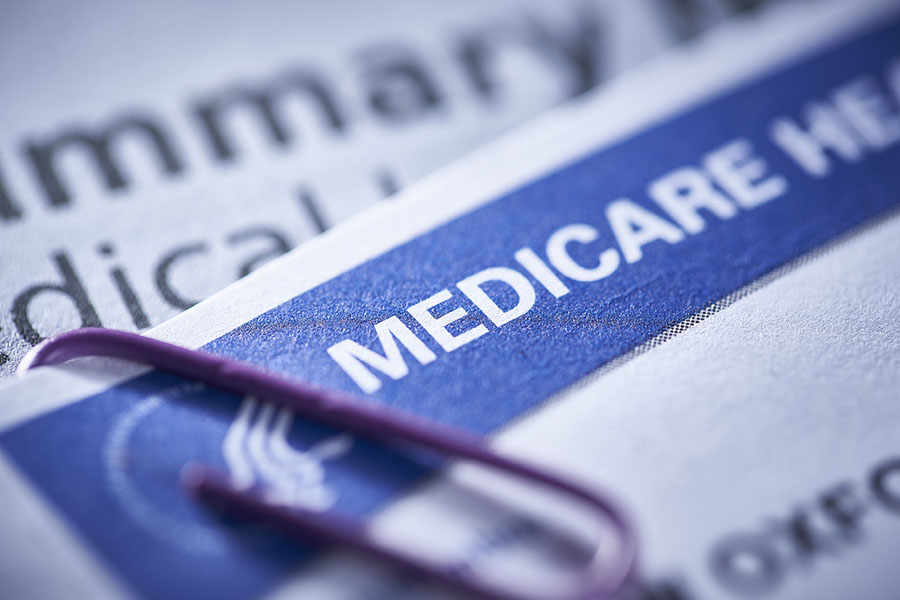
Summer 2020
Dear AMP members,
In the past few months our profession and the regulatory challenges we face have become front-page news for the first time in recent memory, with the entire country becoming educated to the key roles that we play in patient care and public health every single day.
Across the country and the world, AMP members are at the front-lines of the COVID-19 pandemic. Over the past few months, AMP members sought to share real-time guidance and advice to help others with SARS-CoV-2 testing. This real-time communication has been crucial as members navigate shortages of reagents and materials and share breaking research results that can help inform testing efforts on the ground. I know I speak for the entire AMP community when I express my pride and gratitude for this community and the wonderful work that you perform every day to care for your patients.
Beyond the extraordinary circumstances that you all face at work every day during the current health crisis, AMP members have gone above and beyond to advocate for policies that will help ease the burden of the COVID-19 pandemic and ensure that the problems we encountered recently do not hinder future responses. For example, AMP members reached out to Congress and sent 216 letters to their Congressional representatives, which helped to ensure that all diagnostic tests for COVID-19 were covered by insurance in one of the recent federal COVID-19 response packages.
Another exciting and important advocacy development is the introduction of the Verified Innovative Testing in American Laboratories (VITAL) Act of 2020. This proposed legislation resulted directly from successful Capitol Hill meetings during AMP’s 2019 Advocacy Day and is a step in the right direction to ensure that the regulation of laboratory developed testing procedures is not overly burdensome. The VITAL Act clarifies that clinical laboratory regulation should remain solely under CMS and takes an important first step in the modernization of CLIA. You can read more about this development, and many others, in the ChAMPion below.
Sincerely,
Karen Weck, MD

The North Carolina Delegation from AMP's 2019 Advocacy Day, from left to right:
David G Ellis, Jadee Neff, MD, PhD, Barbara Anderson, BS, MS,
Karen Weck, MD and Jim Fuller, PhD.
AMP Champions COVID-19 Pandemic Policies

As laboratories developed and ramped up diagnostic tests to detect SARS-CoV-2 in early 2020, AMP has been engaged in a number of clinical, educational and advocacy campaigns in order to help support our members:
AMP Consolidates Important Information for COVID-19 Diagnostic Testing
To help AMP members stay up to date on the most recent advances in COVID-19 diagnostic testing, including regulatory and clinical practice announcements, AMP is constantly updating our “Testing Resources for COVID-19” webpage. We invite you all to review the materials and to share them with your colleagues.
AMP Leads Advocacy to Ensure Coverage of ALL COVID-19 Diagnostic Tests
In March, Congress began preparing the first of four federal relief packages enacted to date to respond to the COVID-19 public health emergency. Unfortunately, inconsistencies between FDA regulatory requirements for laboratory developed testing procedures (LDPs) and provisions meant to ensure coverage of COVID-19 testing in the Families First Coronavirus Response Act left thousands of patients without the ability to obtain no-cost testing even though they had health care insurance. AMP strongly advocated for inclusion of language to remedy the coverage issue in the third COVID-19 package, the Coronavirus Aid, Relief, and Economic Security (CARES) Act enacted in late March. AMP engaged in a number of conversations with Congressional offices, solicited support from other laboratory organizations, and sent out an Action Alert for AMP members to contact their Senators and Representatives to encourage them to include the language fix. AMP is greatly appreciative to our members who took time out of their busy days during this public health emergency to send over 200 letters to the Hill on this topic! AMP’s advocacy efforts proved to be successful and the CARES Act contained language that closed the coverage gap for specific COVID-19 diagnostic tests and finally ensured that all COVID-19 tests would be covered and free from cost-sharing.
AMP Advocates for Hazard Pay for Laboratory Professionals
In April, the Administration signaled that it was considering whether or not to provide hazard pay to “frontline” healthcare workers who are treating patients with COVID-19. This is a priority for House Speaker Nancy Pelosi (D-CA) who introduced the HEROES Act, which proposes the establishment of a $200 billion “Heroes Fund” to ensure that essential workers on the front lines of the COVID-19 pandemic receive hazard pay. Other members of Congress, including Senate Minority Leader Chuck Schumer (D-NY), have said that they would like to see hazard pay included in the next COVID-19 relief package. AMP applauded this effort but anticipated that laboratory professionals might not automatically be included in these legislative efforts. For this reason, AMP championed a sign-on letter to preemptively advocate that Congress include laboratory professionals (pathologists, laboratory directors, laboratory staff, etc.) in any hazard pay legislation that they are considering in the next COVID-19 legislation package. On April 22, AMP delivered a sign-on letter to Congressional leaders with the support of eight other professional organizations. Congress is expected to pass another COVID-19 relief package before the August recess and it appears likely that hazard pay for frontline workers, including laboratory professionals, will be included. AMP will continue to monitor the development of this package and advocate to ensure laboratory professionals are included in any hazard pay provisions.
AMP Denounces Anti-Asian Discrimination Related to COVID-19
On April 20th, AMP joined 49 other scientific and medical societies to express support for the Resolution Condemning all forms of anti-Asian sentiment as related to COVID–19 by Senators Harris, Duckworth and Hirono and Representative Meng. The multi-society sign-on letter can be found here and the resolution was introduced in early May.
AMP Advocates for Reasonable Payment and Coverage Policies
On April 28, AMP and the College of American Pathologists (CAP) sent a joint letter to CMS requesting immediate national coverage for multiplex polymerase chain reaction (PCR) respiratory viral panel (RVP) tests and to include coverage for COVID-19 when it becomes available in testing panels. As a critical component of triage protocols, laboratories are experiencing an exponential increase in the number of requests for RVPs by clinicians during the COVID-19 outbreak to rule out other respiratory pathogens, and to help guide a patient’s immediate and appropriate treatment during this public health emergency. AMP and CAP are continuing to engage with CMS on this issue to ensure that these panels are covered.
Further, AMP is working with a number of stakeholders that are closely following the development and pricing of COVID-19 diagnostic testing codes. Most recently, Dr. Jay Patel, the AMP Economic Affairs Committee Vice-Chair for New Codes, presented pricing recommendations for the COVID-19 diagnostic testing codes at the annual CMS Clinical Laboratory Fee Schedule Summer Pricing Meeting. AMP and other united stakeholders are advocating for all COVID-19 diagnostic tests to be reimbursed at approximately $100, regardless of if they are considered high-throughput.
AMP Members Provide Valuable Feedback on COVID-19 Testing Situation
In April, AMP members participated in an extensive survey regarding the COVID-19 diagnostic test landscape. The results of the survey highlighted extensive and enduring supply chain problems, concerns with reporting, and the anticipated ramp-up of testing capacity. The results were also reviewed during a town-hall for AMP members. AMP also shared the results of the survey and our subsequent recommendations to a number of policy stakeholders through a Congressional Briefing in May, and subsequent presentations to various groups at FDA, CDC and the COVID-19 Healthcare Coalition. AMP plans to launch a follow-up survey later in the summer to assess how the testing landscape has evolved.
AMP Provides Recommendations to Congress to Address Future Pandemics
On May 29th, AMP submitted extensive comments on the Public Health Emergency related sections of the Cures 2.0 Concept Paper released by Representatives DeGette and Upton. AMP provided recommendations on the regulatory policies that impacted the COVID-19 testing response, testing supply chain issues, the roles that diverse laboratory types play in a public health emergency response, coverage and pricing of tests during a future public health emergency, and streamlining agency reporting for laboratories.
Additionally, AMP provided comments and suggestions on how the lessons learned from the COVID-19 pandemic testing response should be incorporated in Senate HELP Committee Chairman Lamar Alexander’s (R-TN) white-paper on “Preparing for the Next Pandemic” as well as future legislation.
AMP Developing Recommendations for Policies to Remain in Effect After the End of the Public Health Emergency
President Trump signed an Executive Order (EO) on Regulatory Relief to Support Economic Recovery in May 2020 asking agencies to develop a list of policies that have been implemented to address COVID-19 that could also support the economic recovery if they were to be made permanent. AMP is developing recommendations on which policies should be retained that will be shared with both HHS Secretary Alex Azar and Centers for Medicare & Medicaid Services (CMS) Administrator Seema Verma.
AMP Provides Recommendations to Combat Continuing Supply Chain Issues
On July 8th, AMP along with 7 other laboratory organizations submitted a letter to Vice-President Pence and the Coronavirus Task Force to highlight existing concerns with the supply chain. The stakeholders requested both a list of the name and contact information for individuals in each state who are overseeing the supply chain for testing supplies and PPE and to gain visibility into the process of supply allocation. On July 13th, AMP received the list of contacts in each state with permission to distribute to our members. This contact list should serve as an additional resource as laboratories work to obtain consistent access to supplies and reagents. AMP has been authorized to share this document with AMP members ONLY in response to our request to the Coronavirus Task Force. We ask that you only use this resource to assist your institution in providing timely and accurate SARS-CoV-2 testing. We ask that you not distribute this document or share publicly. You can access the list at MyAMP (click Login at the top of www.amp.org). You will need your AMP Username and Password to login.
ANNOUNCEMENT TO LABORATORIES: CARES Act Requires That All Laboratories Performing COVID-19 Diagnostic Tests Report Test Price on Public Website!
On March 27th, CARES Act was signed into law. One rarely discussed provision of the legislation (Section 3202) requires any provider performing COVID-19 diagnostic tests to post the cash price for their test on a public website. Additionally, the law allows the Secretary of Health and Human Services (HHS) to impose a civil monetary penalty not to exceed $300/day for any provider of a diagnostic test for COVID-19 that has not posted the price. Please ensure that your laboratory and/or institution is aware of this requirement. You can find additional information and requirements for billing COVID-19 tests on CMS’s COVID-19 FAQ page.
AMP Advocates for Introduction of VITAL Act

We are excited to announce that Senator Rand Paul (R-KY) introduced the Verified Innovative Testing in America Laboratories (VITAL) Act of 2020. The legislation was a product of great dialogue following an incredibly successful meeting during AMP Advocacy Day in November 2019 and is a wonderful example of AMP member advocacy! The bill was introduced in the Senate on March 17th, 2020 and major provisions of the bill include:
- Clarifies that the regulation of laboratory developed testing procedures (LDPs) rests within CLIA and not the FDA, including during a public health emergency.
- Defines LDPs as a professional medical service that utilizes a laboratory examination in the context of clinical care or public health services.
- Directs CMS to hold a public meeting no later than 90 days after the enactment of this Act to solicit recommendations on ways to modernize CLIA's regulations.
- Directs the HHS Secretary to report to the Senate HELP Committee and House Energy and Commerce Committee on recommendations for updating CLIA as well as provide an assessment of the availability and utilization of LDPs during the 2020 COVID-19 pandemic response.
At the time of this ChAMPion publication, the VITAL Act has one co-sponsor in the Senate (Senator Ted Cruz) and support continues to grow from key stakeholders, such as the American Association for Clinical Chemistry (AACC). AMP member advocacy has continued to push this bill forward, as over 40 members have reached out to encourage their Senators and Representative to co-sponsor the legislation.
TAKE ACTION: If you, or a colleague, are interested in asking your Representative and Senators to support this legislation, you can easily do so at this link: www.amp.org/TakeAction. Once you fill in your zip code you will be shown a form letter that you can personalize. Once you fill in the fields and click “Preview” or “Send,” the system automatically populates your Senators and Representative based on your address.
Advocacy Push for PhDs to be Deemed 'Qualified Healthcare Professionals' Ramps Up (Again)

Since 2011, AMP has campaigned with a number of societies to advocate that qualified PhDs should be deemed as “Qualified Health Care Professionals” (QHPs) by CMS, which would allow doctoral scientists who perform molecular diagnostic testing to be able to bill CMS for their work. At the same time, AMP and others were advocating that CMS introduce a new coding structure for molecular diagnostic procedures that would have two components: a code on the Clinical Laboratory Fee Schedule (CLFS) that would represent the cost to run the assay and a corresponding code on the Physician Fee Schedule (PFS) that would represent the professional work involved in interpreting and reporting the result. Ultimately, CMS decided to place all the molecular pathology codes on the CLFS.
In late 2018, AMP launched a joint workgroup with members from both the Economic Affairs Committee and the Professional Relations Committee to revisit these issues and reignite these advocacy efforts. The goals of the workgroup are to advocate for reasonable reimbursement for the interpretive work that goes into preparing a patient-specific molecular diagnostics report and to get qualified PhDs to be deemed QHPs within CMS. In December 2019, AMP restarted our advocacy efforts in this space by requesting that Representatives DeGette and Upton include a provision to allow qualified non-physician doctoral scientists to bill Medicare directly for these molecular pathology interpretive services as part of their Cures 2.0 legislative package. AMP will continue to provide input and comments to the Representatives as they prepare their Cures 2.0 bill in the near future.
On July 6th, AMP launched a novel Professional Work survey. The survey will both gather data on the professional work that is performed to interpret a molecular diagnostic test result in the context of a patient’s history and assess the work that is performed by MDs and qualified PhDs during molecular testing. We invite all molecular professionals to take the survey here. The results of the survey will be presented at the 2020 AMP Annual Meeting & Expo and will be used to guide advocacy efforts in this space for the next few years.
AMP Expresses Concern About Recent FDA Actions that Restrict the Reporting of Pharmacogenomic Testing Results

In the fall of 2019, AMP became aware that FDA was requiring laboratories that perform pharmacogenomic (PGx) tests to restrict their testing reports to only include the patient’s genotype, without including any information about the patient’s metabolizer status or the implications that a patient’s genotype would have for medication decisions. AMP was alarmed by the Agency’s actions and made aware that laboratories found the new requirements to be even more confusing, as they were restricted from communicating information included in FDA drug labels as part of their reports.
In December, the law firm Hyman, Phelps, & McNamara, P.C. filed a citizen petition to FDA in response to the Agency’s recent actions taken against laboratories offering PGx tests. The citizen petition was filed on behalf of the Coalition to Preserve Access to PGx Testing Information, which is comprised of laboratories providing PGx testing, companies that provide support to laboratories to enable testing, including software, and clinicians who utilize the PGx information to optimize therapies for their patients. The citizen petition requests that: (1) FDA should issue a revised Safety Communication clarifying that laboratories and software providers may communicate information about gene-drug interactions as part of genetic test reports to the extent such information is supported by adequate evidence and is not contraindicated by information in drug labels with PGx information; (2) FDA should permit clinical laboratories to include medication-specific information in PGx test reports that is included in FDA-approved drug labels or that is supported by adequate evidence of PGx gene-drug associations without clearance or approval of a premarket submission; and (3) FDA should conduct any future policy development related to PGx tests in compliance with the Administrative Procedure Act , which allows for public participation in the policy-making process through notice-and-comment rulemaking in addition to other requirements.
The submission of a citizen petition automatically required FDA to open a public comment docket and AMP submitted a response on May 4th. AMP fully endorsed the recommendations made in the original citizen petition and highlighted how FDA’s recent actions encroached on the practice of medicine for molecular diagnostics professionals. AMP explained that laboratory directors are required to include the relevant clinical information in their molecular pathology reports by their accrediting organizations and that FDA’s actions would result in laboratory directors not complying with these requirements and other federal recommendations. AMP also noted that FDA’s actions prevent molecular diagnostics professionals from complying with the AMP PGx Testing Best Practices released in the fall. AMP further expressed grave concern that FDA’s actions would lead directly to patient harm and set a dangerous precedent by disregarding the merit of professional guidelines and their role in healthcare decision-making. Beyond the requests in the citizen’s petition, AMP also requested that FDA disclose any reported adverse events or specific examples of harm from providing PGx report interpretations.
AMP will continue to engage with FDA and other relevant stakeholders on the PGx issue and on the larger LDP oversight issue throughout the second half of 2020.
Many of AMP's Requests Incorporated into Finalized National Coverage Determination for Next Generation Sequencing

Throughout 2019, AMP was actively involved in advocating for improving the CMS National Coverage Determination (NCD) for Next Generation Sequencing (NGS) for Medicare Beneficiaries with Advanced Cancer (referred to here as the NGS NCD). Originally, the NGS NCD was intended to focus on somatic testing, but AMP and other stakeholders learned that CMS included germline testing within the scope of the NGS NCD. You can read further about AMP’s advocacy efforts to urge CMS to revise its current interpretation of the NCD by limiting it to somatic tumor testing here and AMP’s response to the subsequent reconsideration here.
Last fall, CMS published their proposed decision memo for the NGS NCD, which -- contrary to AMP’s request -- included germline testing and would have a number of negative repercussions for tests that were already being covered by the Medicare Administrative Contractors (MACs). You can read about the proposed decision memo and AMP’s advocacy efforts to request that MACs be allowed to retain discretion to cover germline NGS tests for breast and ovarian cancer here. You can also find the comments AMP submitted to CMS here.
In January 2020, the final coverage determination was released. AMP was pleased to see that the final decision memo incorporated many of the recommendations that AMP submitted to CMS last fall. First and foremost, coverage has been expanded in the final decision to allow MACs the discretion to create local coverage determinations for NGS-based testing for all inherited cancers, including breast and ovarian cancers. The memo also includes important clarifications to distinguish between the germline and somatic sections of the policy and the title was altered to become “Next Generation Sequencing (NGS) for Patients with Somatic (Acquired) and Germline (Inherited) Cancer.” This title change reflects the inclusion of both germline and somatic testing and more accurately reflects the policy, as germline testing is not restricted to those with advanced stage cancer.
AMP remains concerned that providing coverage based upon a single technology (i.e., NGS) will require CMS to revisit and reconsider this policy on a regular basis. AMP will now shift our attention to monitor how this policy is implemented and plans to work with CMS, local MACs and other stakeholders as required. We remain focused on preserving broad patient access and ensuring coverage for all of the thousands of clinically and analytically validated NGS-based testing for cancer and other conditions that benefit patients each and every day.
Additional Recent Comment Letters:
Society Sign-on Letter Requesting Renewal of Public Health Emergency (PHE) – July 10, 2020
Joint Comments on MolDX: Phenotypic Biomarker Detection in Circulating Tumor Cells DL38584 – June 12, 2020
Joint Comments on MolDX: Prognostic and Predictive Molecular Classifiers for Bladder Cancer DL38586 – June 12, 2020
Joint Comments on MolDX: Liquid Biopsies for Solid Organ Transplantation DL38582 – June 12, 2020
AMP Expresses Support for Creation of Personalized Medicine Caucus – February 26, 2020
AMP Response to the "Call for Action" for Cures 2.0 – December 16, 2019
Joint Comments on Preliminary Local Coverage Determination: Novitas - Biomarkers for Oncology (DL35396) – December 15, 2019
The AMP EAC and PRC work diligently to provide input to Congress and relevant agencies on all issues affecting regulation and reimbursement of molecular procedures. You can review all recent comment letters here.






















